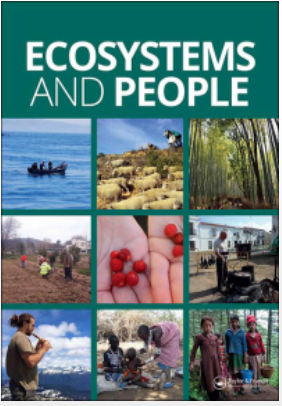南非林波波省Vhembe生物圈保护区人们对入侵植物瓜爪哇紫荆芥的认知和利用
IF 3.7
Q1 Agricultural and Biological Sciences
引用次数: 4
摘要
人类对外来入侵植物物种的认知和认识在生物入侵管理中越来越被认为是重要的,但对植物入侵的社会维度的研究却有限。本研究采用入户调查的方法,评估了番石榴的认知、知识和使用情况。到南非林波波省Vhembe生物圈保护区的农村社区。结果表明,大多数调查对象对瓜哇花有所了解,并认为瓜哇花正在当地蔓延,但不认为瓜哇花是外来入侵植物。瓜爪哇番石榴被认为具有双重用途,大多数受访者都意识到它的好处,包括水果消费、药用、遮阳和木柴供应,以及吸引问题动物、取代本地植物、减少放牧和农业空间等成本。使用瓜爪哇的好处被认为大于成本,因此大多数参与者没有实施任何控制措施。这些结果突出表明,在制定有效的管理计划以避免利益相关者之间的冲突时,需要将农村社区的观念、知识和瓜爪哇的使用纳入其中。为了提高管理生物入侵的有效性,需要更多的研究来了解群落与外来入侵植物物种的关系。本文章由计算机程序翻译,如有差异,请以英文原文为准。
People’s perceptions and uses of invasive plant Psidium guajava in Vhembe Biosphere Reserve, Limpopo Province of South Africa
ABSTRACT Human perceptions and knowledge of invasive alien plant species are increasingly recognised as important in the management of biological invasions, but there is limited research focus on the social dimensions of plant invasion. Using household surveys, this study assessed the perceptions, knowledge, and uses of Psidium guajava Linn. to rural communities in Vhembe Biosphere Reserve, in the Limpopo Province of South Africa. Results showed that most respondents are aware of P. guajava and perceive it to be spreading in their locality but do not consider it an invasive alien plant species. Psidium guajava is perceived to have a dual purpose and most respondents are aware of its benefits including fruit consumption, medicinal purposes, shading and firewood provisioning and costs such as attraction of problematic animals, displacement of native plants, and reduction of grazing and agricultural space. The benefits associated with use of P. guajava are considered greater than the costs, therefore most participants do not implement any control measures. These results highlight the need to incorporate rural community perceptions, knowledge, and uses of P. guajava in developing effective management plans that avoid conflicts between stakeholders. To improve the efficacy of managing biological invasions more research is required to understand how communities relate to invasive alien plant species.
求助全文
通过发布文献求助,成功后即可免费获取论文全文。
去求助
来源期刊

Ecosystems and People
Agricultural and Biological Sciences-Ecology, Evolution, Behavior and Systematics
CiteScore
7.80
自引率
11.30%
发文量
40
审稿时长
42 weeks
期刊介绍:
Ecosystems and People is an interdisciplinary journal that addresses how biodiversity and ecosystems underpin human quality of life, and how societal activities and preferences drive changes in ecosystems. Research published in Ecosystems and People addresses human-nature relationships and social-ecological systems in a broad sense. This embraces research on biodiversity, ecosystem services, their contributions to quality of life, implications for equity and justice, and the diverse and rich ways in which people relate to nature.
 求助内容:
求助内容: 应助结果提醒方式:
应助结果提醒方式:


